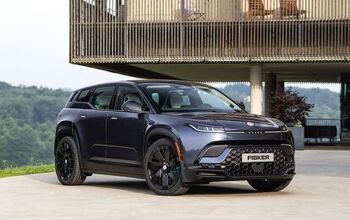Electric vs. Gasoline Cars: Uncovering the Real Climate Savior
Contrary to common misconceptions, electric vehicles (EVs) generally have a smaller carbon footprint compared to traditional gasoline cars. This advantage remains true even when considering the electricity utilized for charging EVs. One key distinction is that EVs produce no direct tailpipe emissions. However, the production of electricity for EV charging can result in carbon emissions, depending on the energy source.
The carbon pollution from electricity varies based on local energy production methods. For instance, electricity generated from coal or natural gas is associated with higher carbon emissions, while renewable sources like wind or solar energy contribute negligible carbon pollution. Despite the variance in electricity production methods, studies indicate that EVs are typically linked to lower greenhouse gas emissions than the average new gasoline vehicle.
The shift towards renewable energy sources further enhances the environmental benefits of EVs. As more renewable energy sources are integrated into the power grid, the overall greenhouse gas emissions associated with EVs can be further reduced. Notably, in 2020, renewable energy sources rose to become the second-most dominant source of electricity in the United States.
Tools to Measure Your EV's Environmental Impact
The Environmental Protection Agency (EPA) and the Department of Energy (DOE) offer valuable resources for assessing the environmental impact of EVs. The EPA's Power Profiler is an interactive tool that provides information about the electricity production mix in different regions. By entering a zip code, users can understand the specific energy sources powering their local area.
Additionally, the Beyond Tailpipe Emissions Calculator, developed by the EPA and DOE, is a user-friendly tool designed to estimate the greenhouse gas emissions from charging and driving an EV or a plug-in hybrid electric vehicle (PHEV). This tool allows users to select specific EV or PHEV models and input their zip code to compare the CO2 emissions from these vehicles with those from gasoline cars. These tools empower individuals to make informed decisions about the environmental impact of their transportation choices.
This article was co-written using AI and was then heavily edited and optimized by our editorial team.
More by TTAC Staff
Latest Car Reviews
Read moreLatest Product Reviews
Read moreRecent Comments
- Duties I’ve never liked Nissan, but think the new Rogue and Parhfinder are at least, finally attractive. I will never own an EV. Bye Nissan. Sayonara.
- Daniel Bridger Bye, bye Nissan.
- Billccm What a shame. I remember when Buick built premium cars at a reasonable price.
- Jalop1991 'It was exhausting': LA vegan restaurants are putting meat back on the menuCalifornia has been at the forefront of healthful eating and plant-based cuisine for decades, from restaurants like Chez Panisse in Berkeley to Michael’s in greater Los Angeles. But despite decades of offering meatless this or gluten-free that, some Southern California restaurants have recently decided that going entirely vegan is not a recipe for long-term financial success.did he say "going entirely vegan," or did he say "going entirely EV"??The parallels are amazing.
- VoGhost Matt, If you could read, you'd know that EV sales are by no means slowing. The rate of increase may be slowing, but more EVs are sold every year, on average by 40%. Please learn something about the industry you try so hard to analyze.


































Comments
Join the conversation